
Cheshire’s police and crime commissioner David Keane is supporting a move by Cheshire Constabulary to reduce the number of young people in Cheshire finding their way into the criminal justice system.
Young people in custody represent some of the most vulnerable children in society and following a review by the Home Office, it was determined that coming into contact with the criminal justice system should be avoided wherever possible as it tends to increase the likelihood of reoffending.
A recent Cheshire review also found that 20 per cent of juvenile arrests were assessed as being unnecessary, with discretion, delay and divert options seen as more preferable courses of action.
In 2020, there were 750 arrests of juveniles between the ages of 10 and 17 in Cheshire. Following the examination of 55 per cent of these cases, four out of 10 arrests resulted in ‘no further action’ with not enough evidence available to prosecute.
The Ministry of Justice also recognises that although young offenders who commit crimes must face the consequences of their actions, it is important to decide whether a formal justice response is appropriate.
PCC David Keane, who is also the chair of Cheshire’s Criminal Justice Board, supports the Constabulary’s Over Criminalisation Working Group and its aims for an alternative - providing opportunities for rehabilitation rather than imprisonment.
Following an update at the Criminal Justice Board meeting this week, David said: “It is crucial to take the right approach when dealing with young people and the justice system.
“Although it’s important that they take responsibility for their actions and victims of these crimes receive reparation - a formal criminal justice approach and imprisonment isn’t always the answer.
“Opportunities for rehabilitation are essential to reduce reoffending and I welcome the Constabulary’s efforts to implement this.”
In order to achieve this, the Over Criminalisation Working Group will sit alongside an ongoing PCC commissioned project to specifically review the over-criminalisation of children in care.
The group seeks to understand and review the experiences of young people who come into contact with Cheshire’s criminal justice agencies. This will include assessing the necessity around arrest and recognising that children and young people who come into contact with the criminal justice system often have underlying trauma such as neglect, abuse, plus social and economic deprivation factors to consider.
Every juvenile will be asked to answer a series of risk assessment questions in order to establish a care plan bespoke to them. If detained, they will also be seen by a health care professional.
Inspector Matt Lagar, who is leading on the project, added: “This is a really important piece of work with both partners inside and outside of the organisation.
“We recognise, quite rightly, that there should be consequences for actions and that victim care is paramount in all that we do. We also need to be alive to the fact that young people in custody represent some of the most complex and damaged children within society. Broken homes, drug and alcohol misuse, generational joblessness, abusive relationships, childhoods spent in care, mental illness, gang membership, educational failure and neglect/abuse are common in the backgrounds of many young offenders.
“We must meet the challenge of balancing the rights and needs of highly vulnerable children and young people and those of their carers and/or the public in deciding how to respond to incidents, and whether a formal criminal justice response is appropriate.
“Our aim with this project is to learn from the experiences of our young people, understand as a criminal justice system how we can develop our decision making around our interactions with young people to withstand scrutiny. I want to enable our processes and systems to reflect the ‘right thing to do, at the right time, and in the ‘right way’. The key for me is proportionality and balance which should be at the heart of all that we do.
“We want to understand; why, how and what can we do to ensure that the experiences of our most vulnerable is influential and in the end has a positive impact on their lives deterring them away from criminality.”

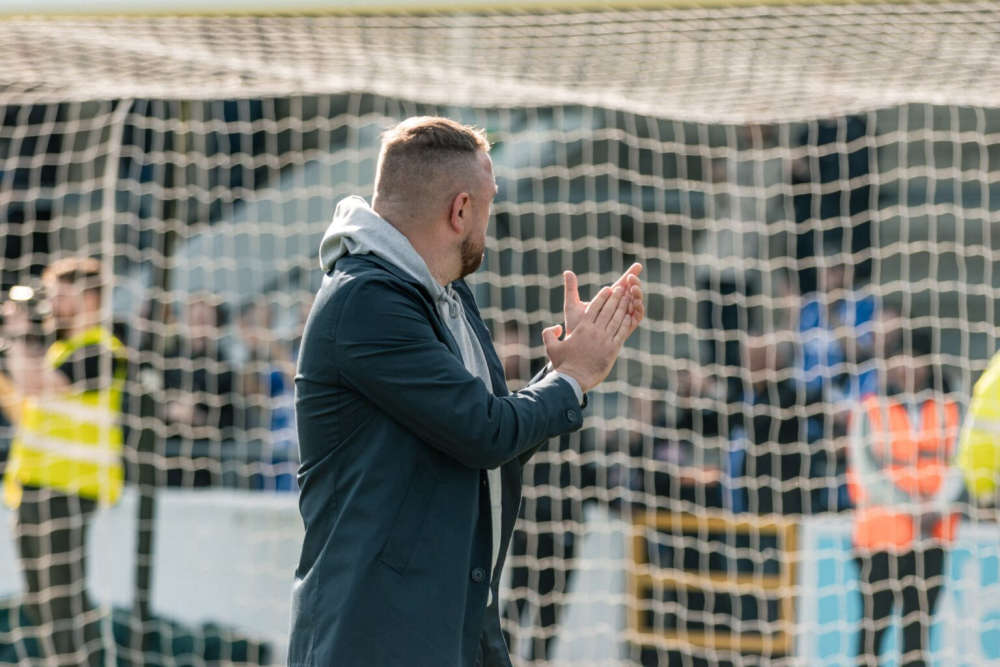 UPDATE FROM BLUES BOSS CALUM MCINTYRE
UPDATE FROM BLUES BOSS CALUM MCINTYRE
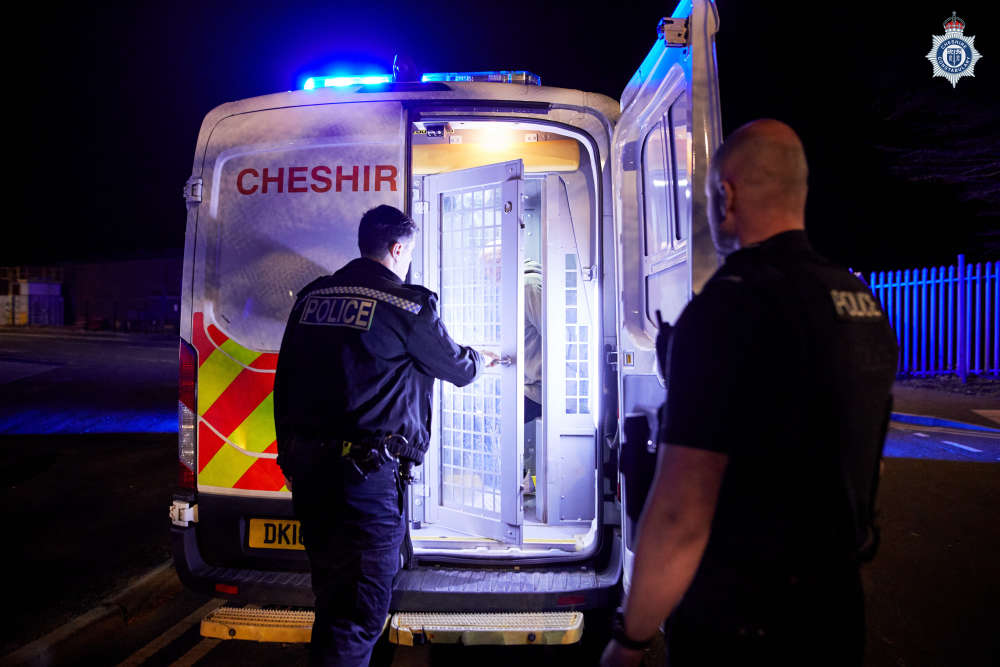 Latest figures show crime in Cheshire continues to fall
Latest figures show crime in Cheshire continues to fall
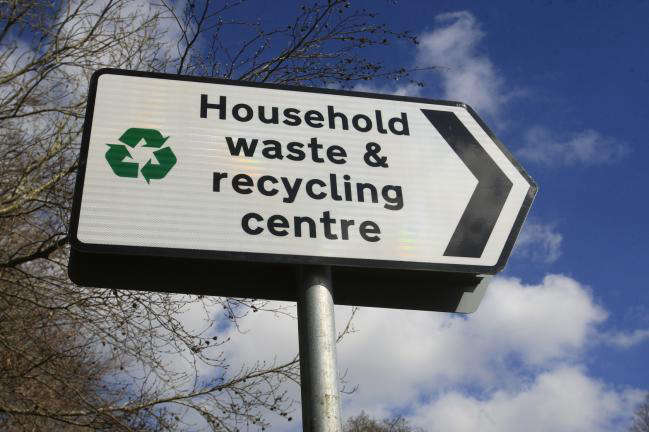 Revised opening days at Flintshire Household Recycling Centres
Revised opening days at Flintshire Household Recycling Centres
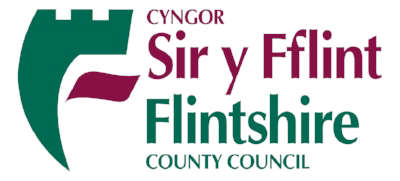 Funding secured for North East Wales Archive
Funding secured for North East Wales Archive
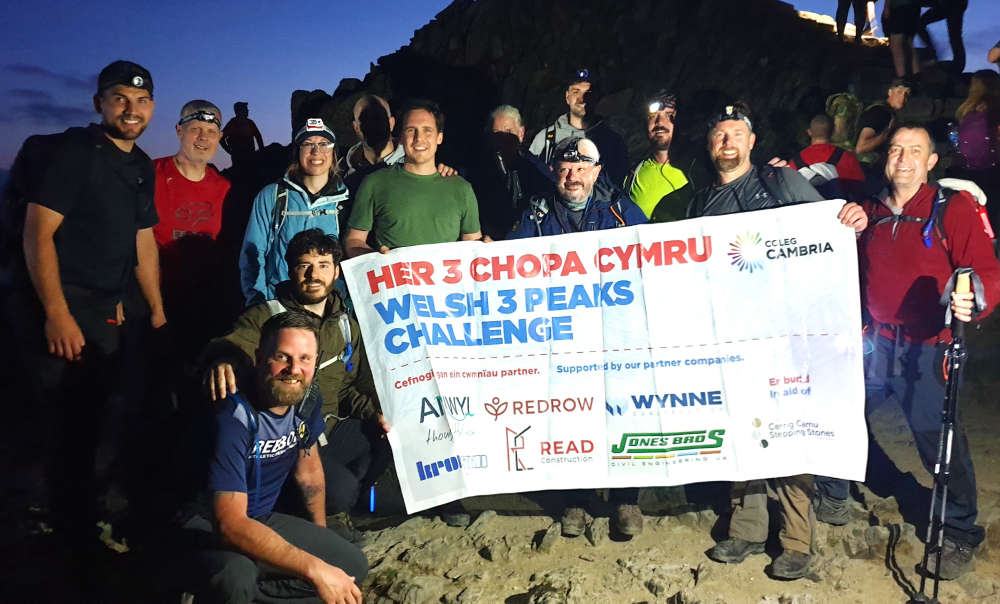 Fearless fundraisers are about to take on their biggest ever feat for a children’s charity
Fearless fundraisers are about to take on their biggest ever feat for a children’s charity
 North West rail improvements planned this May Bank Holiday
North West rail improvements planned this May Bank Holiday
 Cheshire firefighters to deliver vital vehicles and equipment for Ukrainian firefighters
Cheshire firefighters to deliver vital vehicles and equipment for Ukrainian firefighters
 Chester and Wirral Football League - Weekend Round Up
Chester and Wirral Football League - Weekend Round Up
 Four weeks to go to Council’s first electric vehicle awareness event
Four weeks to go to Council’s first electric vehicle awareness event
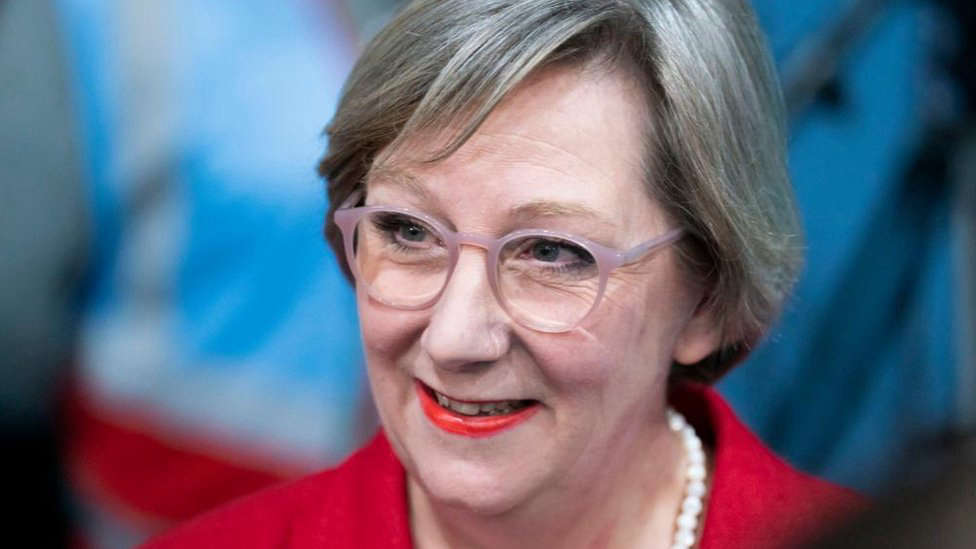 Chester shopping scene ranked in the top 10 best shopping destinations in the country
Chester shopping scene ranked in the top 10 best shopping destinations in the country
 Appeal for information following Chester car thefts
Appeal for information following Chester car thefts
 Police appeal to trace wanted man from Flintshire
Police appeal to trace wanted man from Flintshire
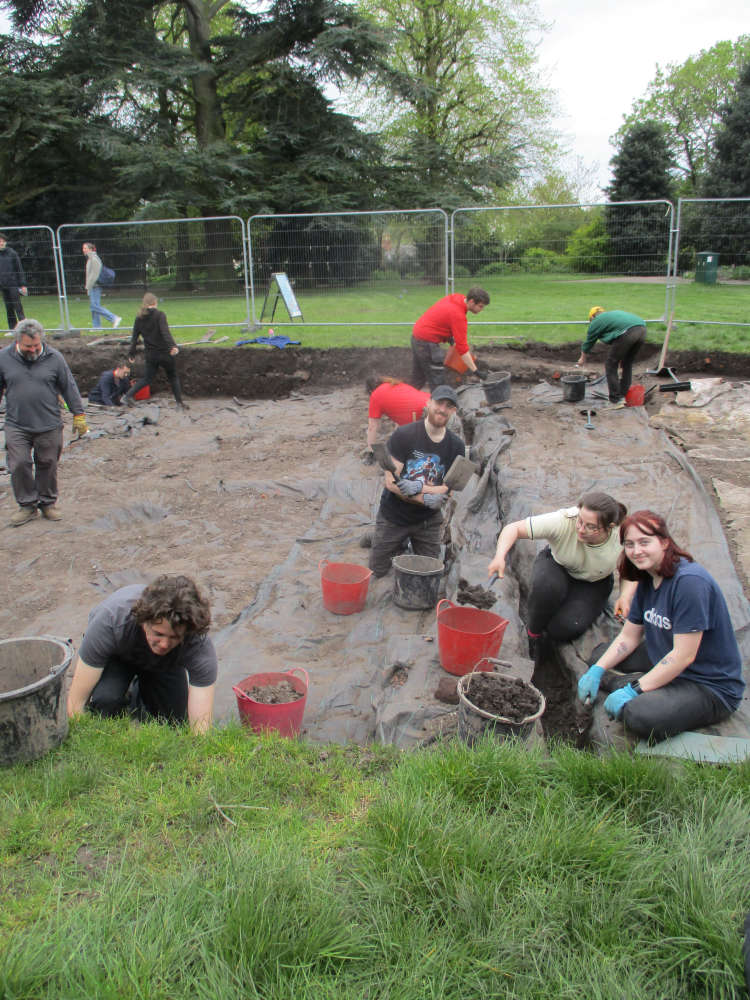 The Grosvenor Park dig is back
The Grosvenor Park dig is back
 Cheshire Constabulary dispels myth on ‘typical’ stalker
Cheshire Constabulary dispels myth on ‘typical’ stalker
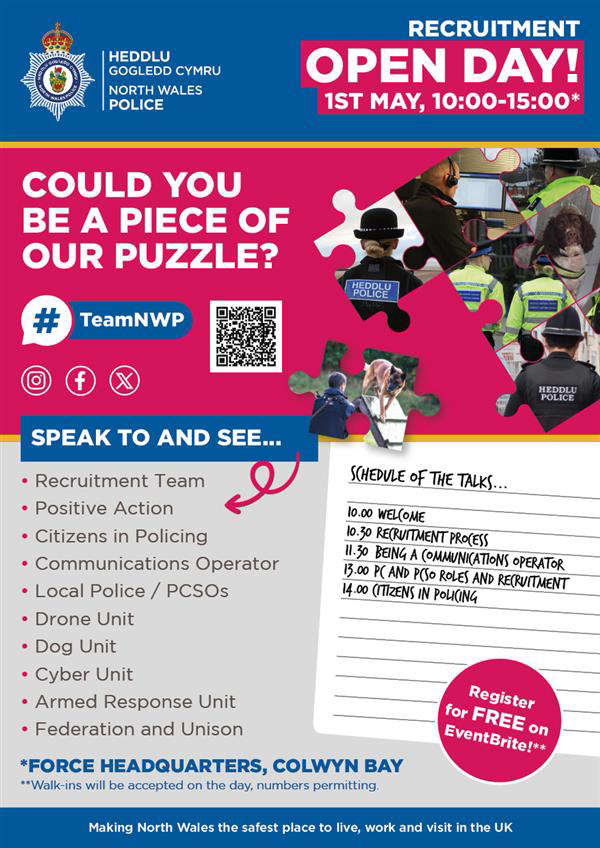 North Wales Police - Recruitment Open Day
North Wales Police - Recruitment Open Day
 Calling all Flintshire Tradespeople
Calling all Flintshire Tradespeople
 MATCH REPORT - CHESTER FC 0 - 0 DARLINGTON
MATCH REPORT - CHESTER FC 0 - 0 DARLINGTON
 MATCH PREVIEW - CHESTER FC v DARLINGTON
MATCH PREVIEW - CHESTER FC v DARLINGTON
 CHESTER FC STATEMENT
CHESTER FC STATEMENT
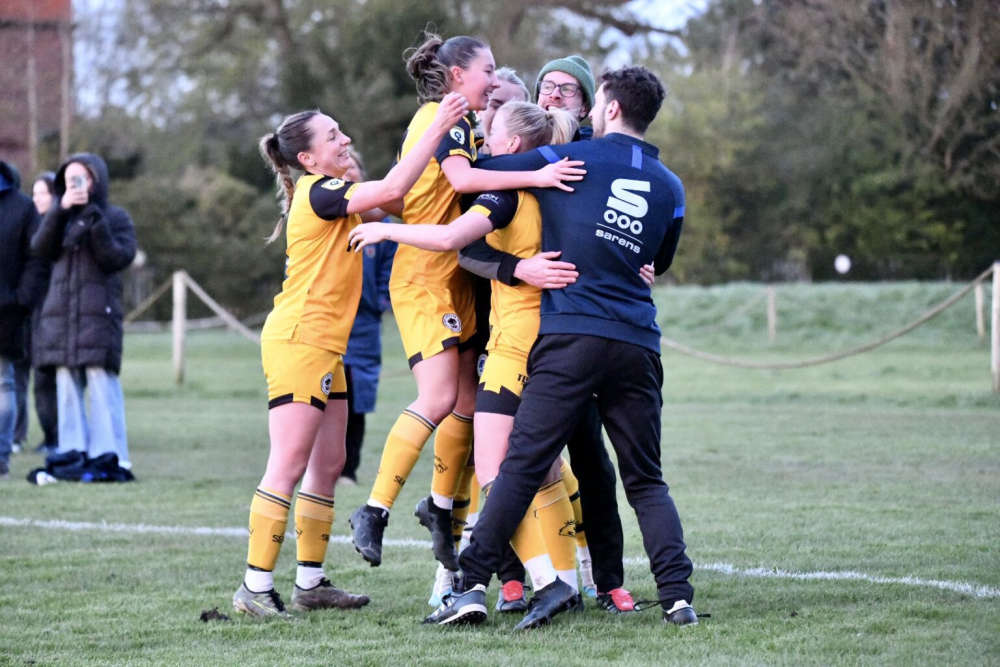 MATCH REPORT: ELLESMERE PORT TOWN 3 - 4 CHESTER WOMEN
MATCH REPORT: ELLESMERE PORT TOWN 3 - 4 CHESTER WOMEN
Comments
Add a comment